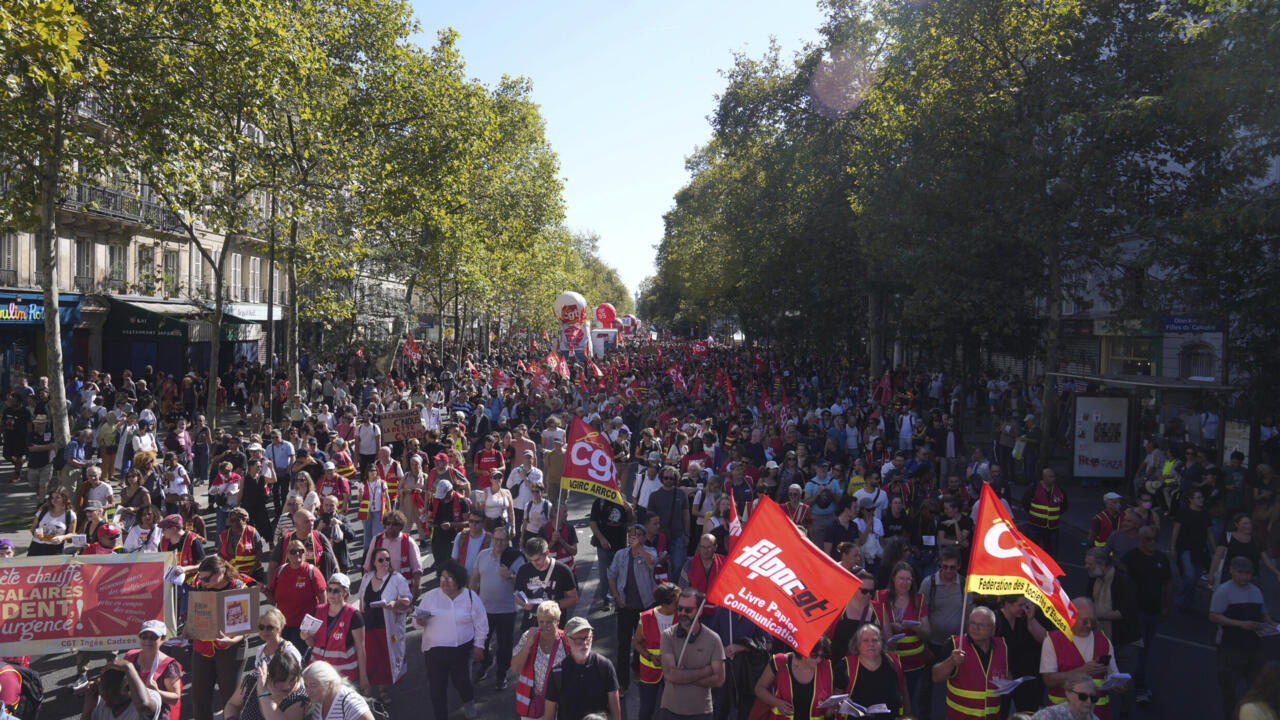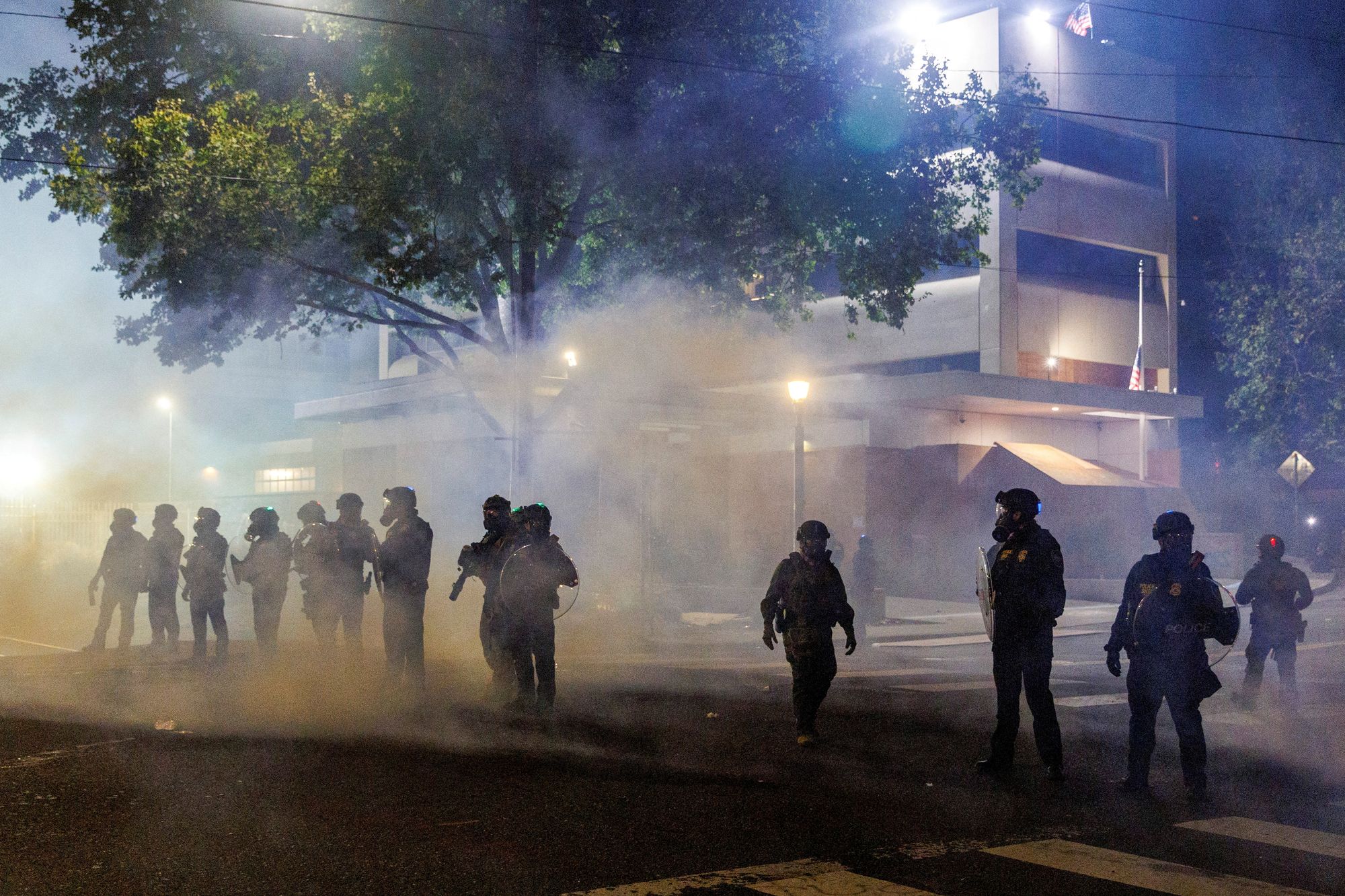Across France, widespread strikes organized by major unions are sending a strong message against government austerity measures, placing significant pressure on President Emmanuel Macron’s administration. Workers from multiple sectors have taken to the streets, highlighting grievances over pensions, wages, and public spending cuts.
The public demonstrations highlight a profound frustration with policies seen as unfairly impacting regular people while protecting economic interests and government budgets. Employees from the public sector, along with transportation staff, educators, and medical professionals have spearheaded protests in major urban areas like Paris, Lyon, Marseille, and Bordeaux, indicating widespread backing for the unions’ requests. These walkouts align with intensified discussions about economic disparity, workers’ rights, and social fairness in France.
The roots of the unrest
La reciente serie de acciones industriales surge a partir de los planes del gobierno para poner en práctica medidas de austeridad con el objetivo de disminuir la deuda pública y controlar el gasto estatal. Las reformas propuestas en los sistemas de pensiones, beneficios del sector público y servicios sociales han provocado un gran descontento. Numerosos sindicatos sostienen que estas medidas ponen en peligro el sustento de las personas, afectan desproporcionadamente a los trabajadores de bajos ingresos y debilitan las protecciones sociales que han sido características del sistema de bienestar francés.
Economic challenges, such as inflation and the increasing cost of living, have heightened public discontent. Employees believe that austerity measures worsen financial burdens, fostering a climate where strikes and demonstrations are viewed as essential methods to safeguard economic stability. Experts point out that the tradition of labor activism in France is crucial in molding public reactions, as unions utilize strikes as a strong form of negotiation and societal impact.
The administration under Macron has stressed the importance of being fiscally responsible, claiming that changes are crucial for maintaining long-term economic stability. On the other hand, detractors argue that austerity measures may intensify social disparities and diminish public confidence in governmental bodies. The struggle between fiscal caution and social fairness has resulted in a complicated policy environment, making it difficult to reach a consensus both politically and economically.
Extent and consequences of the strikes
The strikes have affected a wide range of services, from public transportation and education to healthcare and municipal operations. Airports, rail networks, and urban transit systems have experienced delays and closures, while hospitals report disruptions in routine care. Schools have faced closures or limited operations, leaving families scrambling for alternatives, and public offices have seen reduced availability, affecting administrative processes.
Apart from causing logistical disturbances, the strikes symbolize a united determination, showcasing the unions’ capacity to rally significant portions of the labor force. Demonstrations, speeches to the public, and media efforts enhance the message, drawing global attention and emphasizing public discontent with government actions. Experts caution that extended strikes may have immediate economic impacts, but unions contend that these actions are essential to encourage a serious re-evaluation of policies.
Political implications and Macron’s response
President Macron must carefully manage the increasing protests. His government needs to address public concerns, engage in discussions with unions, and consider wider economic goals while preserving political authority. If grievances are not addressed, it may weaken public trust, whereas offering compromises could attract criticism from economic consultants and fiscal conservatives who support stringent financial discipline.
Macron’s previous encounters with public protests, such as the Yellow Vest movement, provide context for his approach. The government has historically combined dialogue with selective enforcement measures, aiming to address some concerns without fully abandoning broader reform objectives. In this context, the current strikes are not only a test of labor relations but also a referendum on political leadership and the ability to reconcile fiscal and social priorities.
Union leaders stress that the demonstrations transcend short-term policy changes; they portray the movement as a safeguarding of social unity and entrenched rights. This wider message strikes a chord with citizens who view economic disparity as an ongoing problem, underlining the intersection of labor rights advocacy, civic involvement, and governmental policy. Macron’s management of the scenario might impact domestic sentiment and France’s position within Europe, where economic balance and social unity are under close observation.
Wider social and economic background
The strikes occur against a backdrop of global economic uncertainty, rising inflation, and public concerns about the sustainability of social safety nets. Citizens express frustration over stagnant wages, increasing costs of living, and perceived government inaction to alleviate these pressures. In this environment, labor mobilization becomes a crucial mechanism for voicing discontent and seeking policy change.
Economic experts observe that although austerity could improve governmental budgets, it might also reduce local spending, lower the spirits of public sector workers, and ignite social disorder. Labor strikes and protests act as negotiation tactics and as ways to express community priorities, highlighting the intricate connection between fiscal strategies and public opinion. In France, where labor movements have traditionally influenced laws and societal standards, union involvement still holds a crucial position in affecting policy discussions.
The ongoing mobilization highlights the dynamics between different age groups and regions. More young employees and students are joining forces with long-standing unions, infusing the protests with new vigor and attention. Regional inequalities, such as variations in living expenses, job prospects, and access to public services, additionally shape the breadth and fervor of the protests. These aspects together heighten the urgency of the strikes and the challenges facing the Macron administration.
A difficult time of change
The outcome of these strikes will likely depend on ongoing negotiations, the government’s willingness to adjust policies, and the unions’ ability to maintain momentum. Macron’s administration faces the challenge of balancing fiscal reforms with social expectations, ensuring that measures are sustainable yet responsive to public demands. Compromise, strategic communication, and timely interventions will be critical in managing both the immediate disruptions and the long-term implications for social cohesion.
For observers and citizens alike, the unfolding events highlight the enduring power of collective action in shaping policy and influencing governance. As France navigates this period of unrest, the interplay between economic strategy, labor rights, and public sentiment will continue to define both the political landscape and the broader discourse on social justice and fiscal responsibility. The resolution of these protests will provide valuable insights into the evolving dynamics of labor relations, government policy, and citizen engagement in a rapidly changing economic environment.




